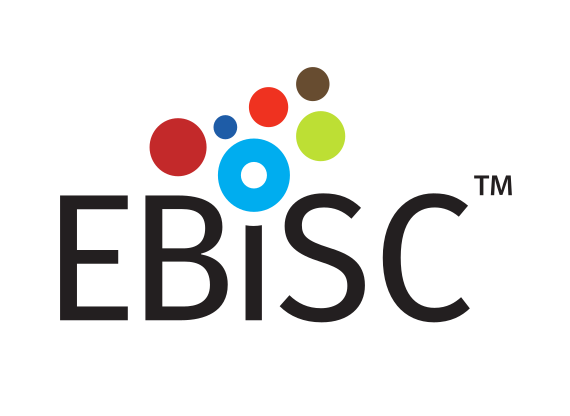If the cells you would like to access are currently listed as unavailable or
you would like information on local partners in USA, Australia, New Zealand or Japan who can support order and delivery,
please get in touch via
Contact@EBiSC.org.
UCLi004-A
RCi173, RCFB60c6
iPSC line
A CLIP contains information about a cell line including any
specific third party obligations relating to, for example,
licensing obligations or the donor consent which affect the
use of the cell line.
The EBiSC Access and Use Agreement must be completed along with an individual
Cell Line Information Pack for each line. Complete the EAUA and send to Contact@EBiSC.org
for countersignature. The EAUA must be fully signed before proceeding with your order.
A batch specific Certificate of Analysis will be available to
download once you receive your EBiSC iPSC line.
General#
Cell Line |
|
| hPSCreg name | UCLi004-A |
| Alternative name(s) |
RCi173, RCFB60c6
|
| Cell line type | Human induced pluripotent stem cell (hiPSC) |
| Similar lines |
UCLi004-B (RCFB60c7, RCi177) Donor's gene variants: C9orf72, C9orf72 Donor diseases: Amyotrophic lateral sclerosis Frontotemporal dementia UCLi004-C (RCi172, RCFB60c2) Donor's gene variants: C9orf72, C9orf72 Donor diseases: Amyotrophic lateral sclerosis Frontotemporal dementia UCLi002-A (HHItC9D-V34, DN19) Donor's gene variants: C9orf72, C9orf72 Donor diseases: Frontotemporal dementia LUBi001-B (PGRN-8310, RCFB58 c4.4, PGRN8310, RCi194) Donor's gene variants: GRN, GRN, GRN, GRN Donor diseases: Frontotemporal dementia LUBi001-C (PGRN-8310, RCFB58 c3.7, RCi200, PGRN8310) Donor's gene variants: GRN, GRN, GRN, GRN Donor diseases: Frontotemporal dementia PFIZi013-A (RCi215, RCFB59 C9) Donor's gene variants: TARDBP, TARDBP Donor diseases: Amyotrophic lateral sclerosis |
Provider |
|
| Depositor | University College London (UCL) |
| Distributors |
EBiSC
|
External Databases |
|
| hPSCreg | UCLi004-A |
| BioSamples | SAMEA3964268 |
| Cellosaurus | CVCL_II89 |
| Wikidata | Q54989670 |
General Information |
|
| Publications | View all related publications on hPSCreg (1) |
| This EBiSC line can be used for: |
Yes
Research use: allowed
Clinical use: no
Commercial use: no
|
| Subclones |
|
Donor Information#
General Donor Information |
|
| Sex | male |
| Age of donor (at collection) | 50-54 |
Phenotype and Disease related information (Donor) |
|
| Diseases | A disease was diagnosed.
|
Donor Relations |
|
| Other cell lines of this donor | |
External Databases (Donor) |
|
| BioSamples | SAMEA3964276 |
hIPSC Derivation#
General |
|
| Source cell type |
A connective tissue cell which secretes an extracellular matrix rich in collagen and other macromolecules. Flattened and irregular in outline with branching processes; appear fusiform or spindle-shaped.; These cells may be vimentin-positive, fibronectin-positive, fsp1-positive, MMP-1-positive, collagen I-positive, collagen III-positive, and alpha-SMA-negative.
|
| Age of donor (at collection) | 50-54 |
Reprogramming method |
|
| Vector type | Non-integrating |
| Vector | Sendai virus |
| Genes | |
Vector free reprogramming |
|
| Type of used vector free reprogramming factor(s) |
None
|
Other |
|
| Derived under xeno-free conditions |
No |
| Derived under GMP? |
No |
| Available as clinical grade? |
No |
Culture Conditions#
Latest released batch |
|
| Culture medium | Essential E8 |
| Passage method | EDTA |
| Surface coating | Matrigel / Geltrex |
| O2 concentration | 21 |
| CO2 concentration | 5 |
| Temperature | 37 |
The following are the depositor culture conditions, they do not refer to any specific batch.
| Surface coating | Matrigel/Geltrex |
| Feeder cells |
No |
| Passage method |
Enzyme-free cell dissociation
EDTA
|
| O2 Concentration | 21 % |
| CO2 Concentration | 5 % |
| Medium |
Essential 8™
|
Characterisation#
Analysis of Undifferentiated Cells
| Marker | Expressed | Immunostaining | RT-PCR | Flow Cytometry | Enzymatic Assay | Expression Profiles |
| POU5F1 (OCT-4) |
Yes |
|
||||
| SSEA-4 |
Yes |
|
||||
| TRA 1-60 |
Yes |
|
||||
| SSEA-1 |
No |
|
Differentiation Potency
In vitro spontaneous differentiation
In vitro spontaneous differentiation
Microbiology / Virus Screening |
|
| HIV 1 | Negative |
| HIV 2 | Negative |
| Hepatitis B | Negative |
| Hepatitis C | Negative |
| Mycoplasma | Negative |
Sterility |
|
| Inoculation for microbiological growth | No Contaminants Detected |
| Mycoplasma | Not Detected |
| Viability | Viable post-cryopreservation |
Genotyping#
Karyotyping (Cell Line) |
|
| Has the cell line karyotype been analysed? |
Yes
46,XY
Passage number: 17
Karyotyping method:
G-Banding
|
Other Genotyping (Cell Line) |
|
